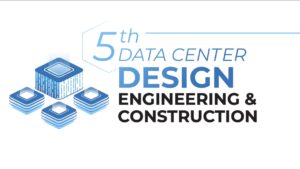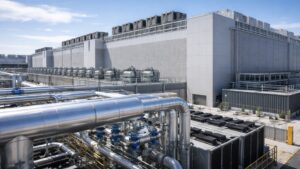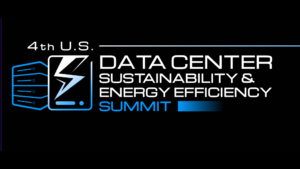The semiconductor industry is now at a point where sustainability is meeting technological advancements. Moreover, the demand for chips globally has reached its peak. The revenues of the industry are projected to exceed $1 trillion soon. So, semiconductor manufacturers are under increasing pressure to balance production capabilities with responsibility for the environment. Moreover, modern semiconductor fabrication facilities or fabs are among the most power and water-intensive industrial operations. This reality, in conjunction with growing environmental regulations and corporate sustainability commitments, has put sustainable energy integration right at the top of what’s important for semiconductor plant design and operations. So, this article explores transformative approaches in sustainable energy infrastructure, renewable integration strategies, and efficiency optimization techniques that are changing the future of semiconductor manufacturing.
Sustainable Energy Integration: Clean Energy Infrastructure and Implementation
Sustainable semiconductor manufacturing finds its basis in designing clean energy systems. These are the ones that seamlessly integrate with the existing operations. This is while supporting growth in the future and environmental objectives. So, let us see some approaches that help in reaching the objective:
Advanced Power Distribution Networks
Modern semiconductor plants are making use of advanced power distribution networks. These integrate traditional power sources with renewable power using intelligent grid systems. Furthermore, advanced control algorithms, smart transformers, and automated switching equipment keep the power quality at the optimal level. This is while maximizing the utilization of renewable energy. Moreover, real-time monitoring systems monitor the power flow patterns to enable dynamic load balancing and predictive maintenance. Additionally, the AI-driven control systems ensure optimal routing of power and maintain strict voltage stability conditions needed in semiconductor manufacturing processes.
Sustainable Power Quality Management
State-of-the-art power quality management systems ensure a stable, clean power supply that supports sustainable energy integration. Furthermore, these systems reflect active harmonic filters, dynamic voltage regulators, and power factor correction equipment of sophisticated quality. This maintains stable conditions of power. Moreover, advanced tools for monitoring provide real-time analysis of power quality metrics. This enables quick responses to potential issues. Additionally, the use of smart power conditioning equipment reduces energy losses. It also ensures that sensitive manufacturing equipment receives the exact specifications of power that are crucial for optimal operations.
Integration of Energy Storage
Modern facilities use different energy storage solutions to ensure proper power management and effective operation. Furthermore, advanced battery systems, such as lithium-ion and flow batteries, provide vital backup power. This is while allowing better integration of renewable sources. Moreover, thermal storage takes excess heat and stores it for later use. Meanwhile, the compressed air energy gives additional grid stability support. Additionally, integration of these storages also helps facilities realize the opportunity of maximum usage of renewables with consistent supply to be made available in case some manufacturing processes may require certain power.
Grid Resiliency Systems
Advanced grid resilience systems protect semiconductor plants from disruptions in power and support sustainable energy integration. Furthermore, these systems include sophisticated algorithms for fault detection, automatic isolation, and rapid switching equipment to ensure power stability. Moreover, intelligent microgrids support the facility’s ability to operate independently when there are disturbances in the grid with optimal power quality. Redundant power systems and advanced protection equipment implementation ensure the continued running of critical processes with maximum utilization of renewable energy.
Sustainable Energy Integration: Renewable Energy Technologies and Optimization
The integration of renewable sources into the energy supply requires advanced management systems and optimization strategies to ensure a reliable operation while meeting sustainability goals. So, let us see them ahead:
Solar Integration Systems
State-of-the-art solar integration systems combine the high efficiency of photovoltaic arrays with advanced power management technology. Furthermore, such systems use smart inverters, maximum power point tracking, and advanced monitoring equipment. This optimizes the generation of energy. Moreover, automated cleaning systems and advanced maintenance protocols ensure constant performance while intelligent control systems manage the flow of power to the facility. Additionally, the inclusion of Solar forecasting algorithms as one of the top sustainable energy solutions for semiconductor manufacturing enables facilities to predict generation patterns and therefore modify their strategies for energy storage and consumption.
Wind Power Management
Advanced wind power systems use on-site and virtual power purchase agreements to maximize the use of renewable energy. Furthermore, modern turbine technology, along with sophisticated monitoring systems, enables optimal generation and integration of power. Moreover, smart control systems manage the flow of power from the wind source, and advanced forecasting algorithms forecast generation patterns. Additionally, the use of automated maintenance systems and real-time performance monitoring ensures that the system operates reliably while making the most of available wind resources.
Geothermal Energy Solutions
Innovative geothermal systems for sustainable energy integration offer both power generation and thermal management for semiconductor facilities. Furthermore, advanced ground-source heat pumps, for example, use sophisticated systems of control to optimize heating and cooling efficiency. Moreover, deep geothermal wells with up-to-date heat exchange technologies give steady renewable energy generation. Additionally, the integration of smart monitoring systems allows for an optimal utilization of geothermal resources while maintaining stable operations. So, these systems offer solutions that are reliable and sustainable regardless of the weather conditions.
Optimization of Hybrid System
Sophisticated hybrid energy systems combine multiple renewable sources with advanced storage and management technologies. Furthermore, intelligent control systems optimize the interaction between different sources of energy, different kinds of storage systems, and facility demands. Moreover, advanced analytics platforms predict energy requirements and optimize resource allocation in real-time. Additionally, the use of machine learning algorithms enables continuous improvement in the performance of the system, while maintaining reliable operation. These integrated systems also make sure that maximum utilization of renewable energy is done and continuous power supply is available to critical manufacturing processes.
Sustainable Energy Integration: Efficiency and Performance Management
Continuous monitoring and optimization of energy systems help ensure maximum efficiency and sustainability and meet the requirements of various operations. So, let us see the elements that can help in the same:
Energy Performance Analytics
Advanced analytics solutions provide an in-depth understanding of energy consumption behaviors and the performance of the system. Furthermore, real-time monitoring systems measure key performance indicators for every energy system. This is so that optimizations can be quickly identified and addressed. Moreover, machine learning algorithms analyze operational data to optimize efficiency improvements and predict needed maintenance. Additionally, sophisticated reporting tools are implemented to make better-informed decisions. This is while supporting reporting requirements for sustainability and compliance with regulations related to the environment.
Smart Load Management
Intelligent load management systems optimize energy distribution across facility operations. Furthermore, advanced scheduling algorithms balance power demands with available renewable resources while automated systems manage non-critical loads to diminish peak demand. Smart control systems also enable participation in utility demand response programs while keeping critical operations going. Moreover, the integration of AI-driven optimization tools supports efficient energy utilization. This is while supporting grid stability, and reducing operational costs making it one of the most effective energy-efficient practices in semiconductor production.
Sustainable Resource Integration
Comprehensive resource management systems optimize energy and water system integration. Furthermore, advanced heat recovery systems capture and reuse waste energy while smart water management reduces energy usage for cooling and processing. Moreover, intelligent control systems optimize resource allocation across all facility operations. This enables better use of available resources. Additionally, the use of circular economy principles maximizes efficiency with minimal environmental impact.
Performance Monitoring and Verification
Sophisticated monitoring systems aiding in sustainable energy integration track and validate energy performance across all operations of the facility. Furthermore, advanced metering infrastructure offers minute details about consumption patterns, as well as the overall efficiency of the system. Moreover, automated reporting tools create holistic performance analytics while supporting sustainability certification requirements. The implementation of continuous commissioning protocols ensures optimal system performance and identifies opportunities for further optimization.
To Sum Up
Sustainable energy integration solutions in semiconductor manufacturing have now become imperative both for operational needs and environmental responsibility. As the industry grows further, innovative approaches to energy management and sustainability will take on a highly critical role in facility design and operation. To explore topics like these in greater depth and connect with industry leaders, join us at the upcoming Semiconductor Plant Design Engineering And Construction Summit on November 6-7, 2024, in Phoenix, AZ. It is going to be an excellent opportunity to delve into detailed discussions about sustainable energy solutions, advanced facility design, and future directions in semiconductor manufacturing. So don’t miss this opportunity to join the industry conversation and learn from the leading experts. Register now.




